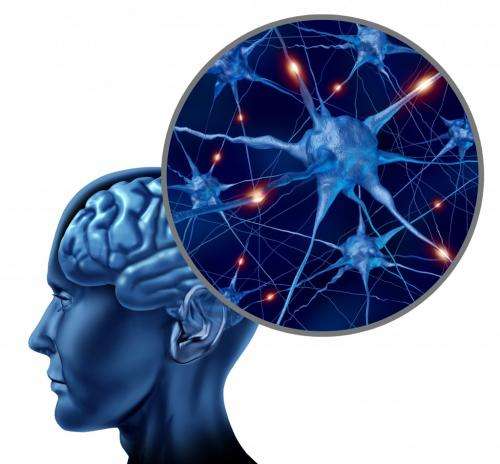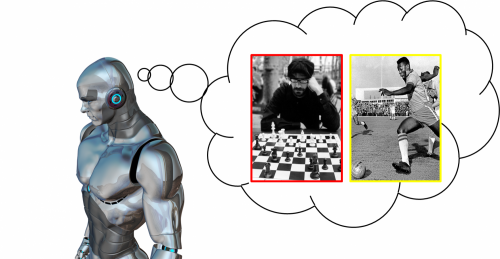Modular brains help organisms learn new skills without forgetting old skills

New research suggests that when brains are organized into modules they are better at learning new information without forgetting old knowledge. The findings—published this week in PLOS Computational Biology—not only shed light on the evolution of intelligence in natural animals, but will also accelerate attempts to create artificial intelligence (AI).
Kai Olav Ellefsen (Norwegian University of Science and Technology), Jean-Baptiste Mouret (Pierre & Marie Curie University) and Jeff Clune (University of Wyoming) used simulations of evolving computational brain models called artificial neural networks to show that more modular brains learn more and forget less.
The brains of animals (including humans) are modular, which means they have many separate units, such as those for language and facial recognition. While natural animals tend to forget gradually, artificial neural networks currently exhibit what is called 'catastrophic forgetting'. They rapidly overwrite previously acquired knowledge when learning a new skill. The researchers found that modularity significantly reduced such catastrophic forgetting in these computer brains.
In future work, the researchers plan to dramatically scale up the complexity of the brain models and the difficulty of the tasks they ask the neural networks to learn. "Building models that incorporate both evolution and learning is critical to understanding the evolution of the animal nervous system", Jean-Baptiste Mouret says. Jeff Clune adds: "The ultimate goal of artificial intelligence research is to produce AI that can learn many different skills and get better at each of them over time, just as humans and animals do. We must solve the problem of catastrophic forgetting to realize that goal. This work is an important step in that direction, but it is just one step in a long journey."

More information: PLOS Computational Biology: www.ploscompbiol.org/article/i … journal.pcbi.1004128
Journal information: PLoS Computational Biology
Provided by Public Library of Science



















